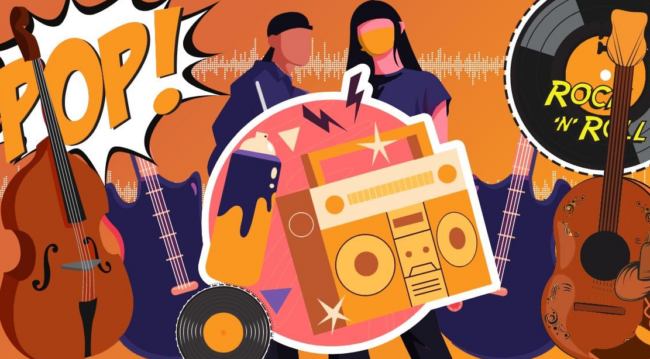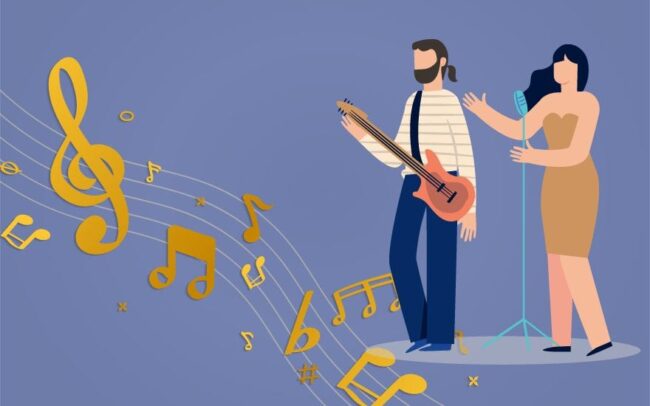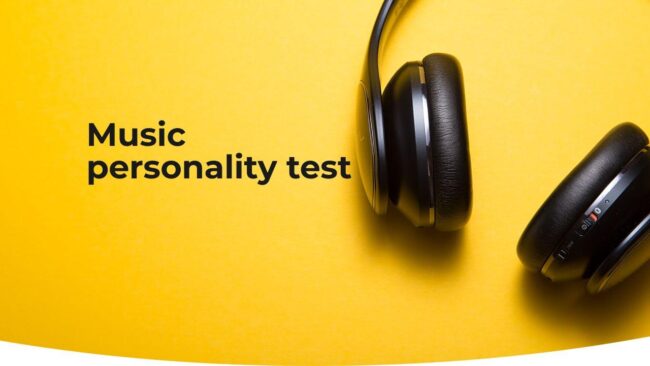Ever wondered why certain music resonates with you on a personal level? Researchers have been captivated by the relationship between music and personality, and how these two aspects intertwine to influence our lives. In this article, we will delve into the connection between musical preferences and personality traits, while examining temperament and psychometrics. Uncover more about yourself through the music that speaks to you.
The Link between Music and Temperament

Temperament, an aspect of personality, relates to the emotional and behavioral patterns that emerge during early childhood and remain relatively constant throughout one’s life. Various facets of temperament, like emotional reactivity and attentional control, have been connected to musical preferences.
For example, individuals with high emotional reactivity may be attracted to music that elicits strong emotions, while those with lower emotional reactivity could prefer more mellow or instrumental music. Likewise, people with high attentional control might appreciate complex, intricate music, while those with lower attentional control may lean towards simpler, repetitive melodies.
Personality Traits and Musical Preferences
Researchers have used psychometric tools like the Big Five to explore the relationship between musical preferences and personality traits. For example, studies have found that people who score high on openness to experience tend to prefer complex, unconventional music, while those scoring high on extraversion often enjoy upbeat, energetic tunes.
Numerous studies have explored the correlation between personality traits and musical preferences. By analyzing the outcomes of personality tests and participants’ reported musical preferences, researchers have uncovered some fascinating patterns.
One study discovered that individuals with high scores in openness were more likely to appreciate classical, jazz, and world music, while those with high conscientiousness scores favored pop and religious music. Extraverts often preferred upbeat genres such as pop, dance, and hip-hop, while introverts gravitated towards contemplative, introspective music like folk, classical, and indie rock.
Agreeableness, a trait marked by compassion and cooperation, has also been linked to musical preferences. People with high agreeableness scores usually enjoy genres emphasizing harmony and positive emotions, like pop, R&B, and gospel. Conversely, those with lower agreeableness scores might be drawn to music with aggressive or discordant elements, like heavy metal or punk.
Lastly, an intriguing connection has been found between neuroticism and musical preferences. Individuals with high neuroticism scores may favor music that conveys strong emotions or serves as an emotional outlet, such as heavy metal or blues. In contrast, those with low neuroticism scores may enjoy more lighthearted and carefree genres, like pop or electronic dance music.
Exploring Musical Styles and Genres

Various musical styles can provide unique insights into our personalities and emotional states. If you’re curious about your own musical preferences, consider taking a free music personality test.
Reflective and complex music, including classical, jazz, and progressive rock, often appeals to those with a high level of openness to experience, as these genres require attention and appreciation for intricate compositions and intellectual engagement. Listeners attracted to these genres may have a flair for creativity, abstract thinking, and a curiosity for exploring new ideas and perspectives.
Upbeat and conventional music, such as pop, country, and easy listening, is typically characterized by catchy tunes, relatable lyrics, and a generally accessible sound. This style often resonates with individuals who score high in conscientiousness and agreeableness, as they might value the structure, positivity, and familiarity inherent in these genres.
Energetic and rhythmic music, like dance, hip-hop, and electronic, is likely to captivate extraverted listeners who enjoy the physicality and dynamic energy of these styles. These individuals may be outgoing, sociable, and drawn to experiences that engage their senses and invigorate their passion for life.
Intense and rebellious music, which includes genres such as heavy metal, punk, and alternative rock, often showcases aggressive, potent, and occasionally provocative themes. This musical style may resonate with individuals who score lower on agreeableness and higher on neuroticism, as they could be attracted to the raw emotion, unapologetic attitude, and cathartic expression present in these genres. These listeners may value authenticity, individualism, and a certain resistance to conformity and societal norms.
Connecting Musical Styles to Personality
The connection between musical styles and personality traits is evident in the way listeners are drawn to specific genres based on their temperament, attitudes, and emotional needs.
Reflective and complex music can serve as a source of intellectual and emotional nourishment for those with open and curious minds.
Upbeat and conventional tunes may provide a sense of comfort, stability, and positivity for conscientious and agreeable individuals.
Energetic and rhythmic music can fuel the social and physical engagement extraverted listeners crave, allowing them to express their enthusiasm and connect with others through shared experiences.
Intense and rebellious music can offer an emotional outlet and a sense of solidarity for those who embrace their individuality and challenge societal norms.
Different musical styles offer unique insights into our personalities, characters and emotional stance. You can take this free music personality test if you’re curious about discovering your own musical styles.
Musical Therapy and Personal Growth

Music therapy is an evidence-based clinical approach that uses music to address physical, emotional, cognitive, and social needs of individuals. By tapping into the links between music and personality, music therapy can help people of all ages and backgrounds achieve personal growth, self-expression, and emotional healing.
One of the key benefits of music therapy is its ability to foster emotional well-being. By creating a supportive and non-judgmental environment, music therapists can help clients explore and express their feelings through the medium of music. For those struggling with depression, anxiety, or trauma, engaging with music can provide a safe and constructive outlet for emotions, helping them to process and cope with their experiences.
Music therapy can also facilitate personal growth and self-awareness. By engaging with music that resonates with their personality, clients can gain a deeper understanding of their own identities, strengths, and areas for growth. This heightened self-awareness can lead to increased self-esteem and a stronger sense of self-worth. Furthermore, music therapy can play a vital role in developing social skills and fostering interpersonal relationships. Group music therapy sessions encourage participants to collaborate, communicate, and empathize with one another, helping to build strong social connections and promote a sense of belonging.
Conclusion

The interplay between music and personality is multifaceted. As you listen to your favorite tracks, ponder how they might reflect aspects of your own temperament and personality traits. By understanding these connections, you can gain a deeper appreciation of the music you love and uncover more about yourself in the process.
